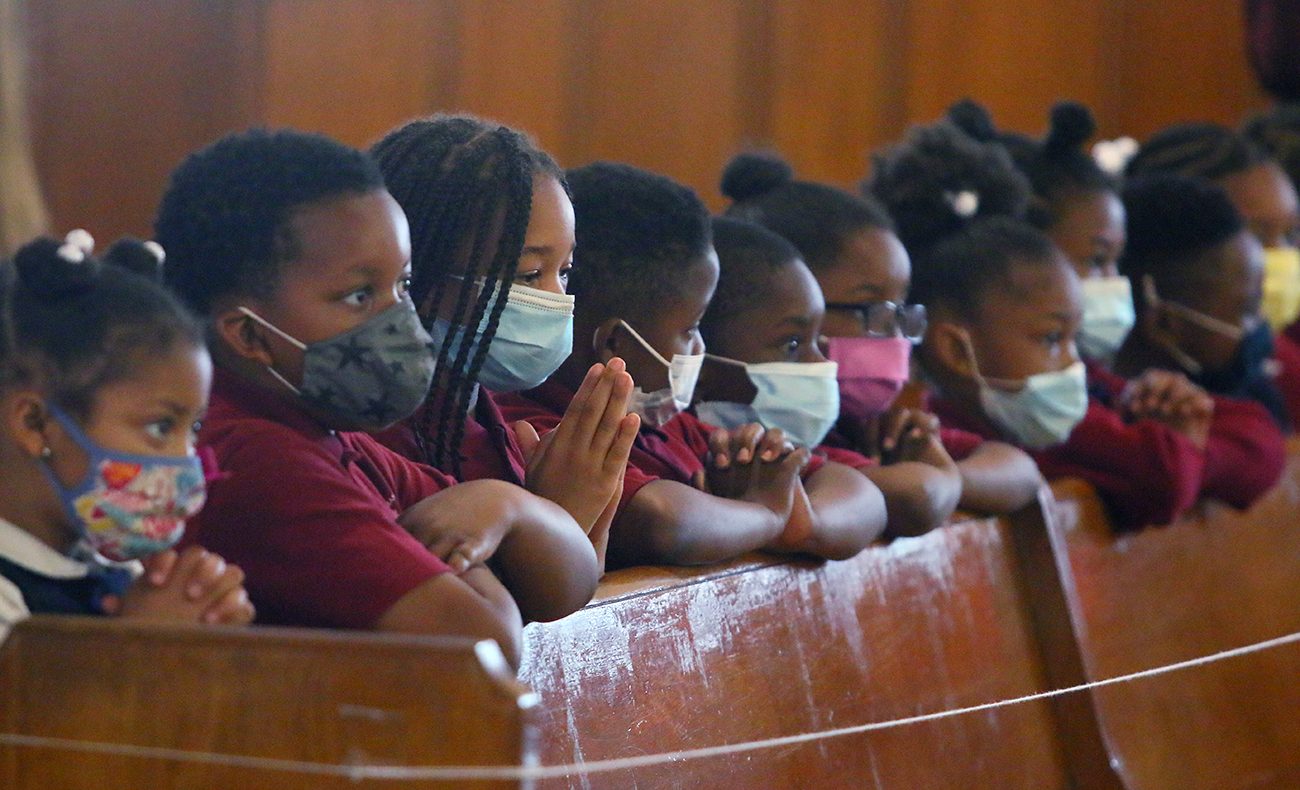Catholics in the City of Philadelphia got an unexpected surprise as restrictions related to the COVID-19 pandemic were lifted for all churches on Wednesday, June 2.
Protocols such as frequent building sanitation, social distancing and capacity limits in churches were first put in place in March 2020. As of last week their removal in Philadelphia had been expected on June 11.
Wednesday’s action by the city followed a similar new policy in suburban Bucks, Chester, Delaware and Montgomery counties that went into effect on Monday, May 31.
[hotblock]
Now all churches in the Philadelphia Archdiocese may remove the ropes between pews – allowing for full capacity and close proximity — and no longer need teams of volunteers to clean high-touch surfaces as soon as this weekend’s Masses, June 5-6, the Solemnity of the Most Holy Body and Blood of Christ.
The wearing of masks, however, will remain a consideration for Catholics coming to Mass.
The Centers for Disease Control recommended May 13 that people who are fully vaccinated against the coronavirus no longer need to wear masks or follow social-distancing restrictions in most indoor and outdoor settings, except where prohibited by state and local regulations.
At this time the requirement for face masks indoors remains in force in the City of Philadelphia, while in the suburbs the practice remains optional and is up to an individual’s preference.
According to revised archdiocesan guidelines issued June 2, people should be “respectful of a person’s choice” whether or not to wear a face mask in churches.
Congregational singing led by cantors, choirs and musicians also is once again encouraged, and people may again use hymnals and missalettes to participate actively at Mass and devotions.
Within the liturgy, the sign of peace will still be suspended, and only holy Communion in the form of bread will be offered.
Catholics still have a dispensation from the obligation to attend Sunday Mass and holy days of obligation.
While livestream celebrations of the Mass and devotions may continue for parishioners at home, these real-time events are “always preferred over recordings,” according to the guidelines.
Looking ahead, parish pastors “should plan on the gradual reduction of livestream services in favor of encouraging the irreplaceable need for the faithful to participate in the Sacred Liturgy in-person,” the guidelines read.
The celebration of other sacraments including baptism, confirmation, penance and reconciliation, matrimony and anointing of the sick may be carried out without exceptions or restrictions.
Priests may hear confessions in the confessional, anonymously or face to face, also without any restrictions.
PREVIOUS: Ascension offers digital events to help Catholics celebrate Corpus Christi
NEXT: Students share deep-sea designs with renowned explorer




Share this story